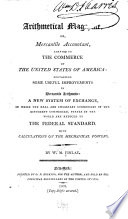 | William M. Finlay - Accounting - 1803 - 272 pages
...the first and last terms together — multiply halfthz sum by the number of terms, or the whole i<um by half the number of terms, the product will be the sum of the series. EXAMPLE. 2. Bought 30 yds. of ribband ; for the first I gave a penny, for the last 30¿. : How much... | |
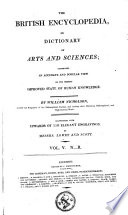 | William Nicholson - Natural history - 1809 - 684 pages
...last term. • " The sum of a series of quantities in arithmetical progression is found by multiplying the sum of the first and last terms by half the number of terms." Let a be the first term, b the common difference, n the number of terms, and » the sum of the series... | |
 | William Nicholson - Natural history - 1821 - 376 pages
...last lerm. " The sum of a series of quantities in arithmetical progression is found by multiplying the sum of the first and last terms by half the number of terms." Let a be the first term, A the common difference, n the number of terms, and a the sum of the series:... | |
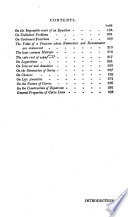 | James Wood - Algebra - 1825 - 322 pages
...term. (212.) The sum of a series of quantities in arithmetical progression is found by multiplying the sum of the first and last terms by half the number of terms. Let a be the first term, b the common difference, и the number of terms, and s the sum of the series:... | |
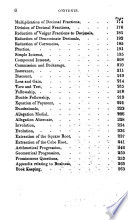 | Charles Davies - Arithmetic - 1833 - 284 pages
...the terms of an arithmetical progression. RULE. Add the two extremes together and multiply their sum by half the number of terms, the product will be the sum of the series. Ex. 1. The extremes are 2 and 100, and the number of terms 22 : what is the sum of the series ? 2 1st... | |
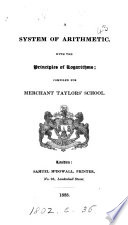 | Richard Frederick Clarke (the elder.) - 1833 - 158 pages
...No. of terms. Ans. 1260 Sum of all terms. RULE — Add the extremes together, and multiply the sum by half the number of terms. The product will be the sum of all the terms. EXERCISES. 1. If the least term be 3, the greatest 108, and the number of terms 14,... | |
 | Etienne Bézout - Calculus - 1836 - 216 pages
...this arithmetical progression. But the sum of the terms of such a progression is found by multiplying the sum of the first and last terms by half the number of terms. Whence, this sum •will be, (substituting u for its value gt, which is the last term,) (,§" + M)... | |
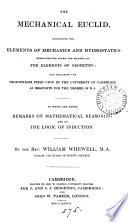 | William Whewell - 1837 - 226 pages
...lx -5 (a + #) = 9« +7.r - 5 a - 5x = 4 a + 2 a: 60. To find the sum of an arithmetical progression, multiply the sum of the first and last terms by half the number of terms. Thus the sum of 10 terms of 1, 3, 5, &C. is (1 + 19) x 5 = 100. For if l + 3 + 5 + &c. to 19 (10 terms)... | |
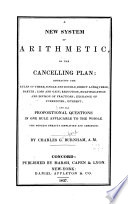 | Charles Guilford Burnham - Arithmetic - 1837 - 266 pages
...number of terms are given, to find the sum of the series. RULE. Multiply half the sum of the extremes by the number of terms ; the product will be the sum of the series. 14. A man has 9 sons; the youngest is 8, the eldest 40 years old. What is the sum of their ages? Answer,... | |
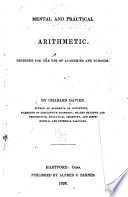 | Charles Davies - Arithmetic - 1838 - 292 pages
...the terms of an arithmetical progression. RULE. Add all the extremes together and multiply their sum by half the number of terms, the product will be the sum of the genes. Q. How do you find the sum of an arithmetical series? EXAMPLES. 1. The extremes are 2 and 100,... | |
| |